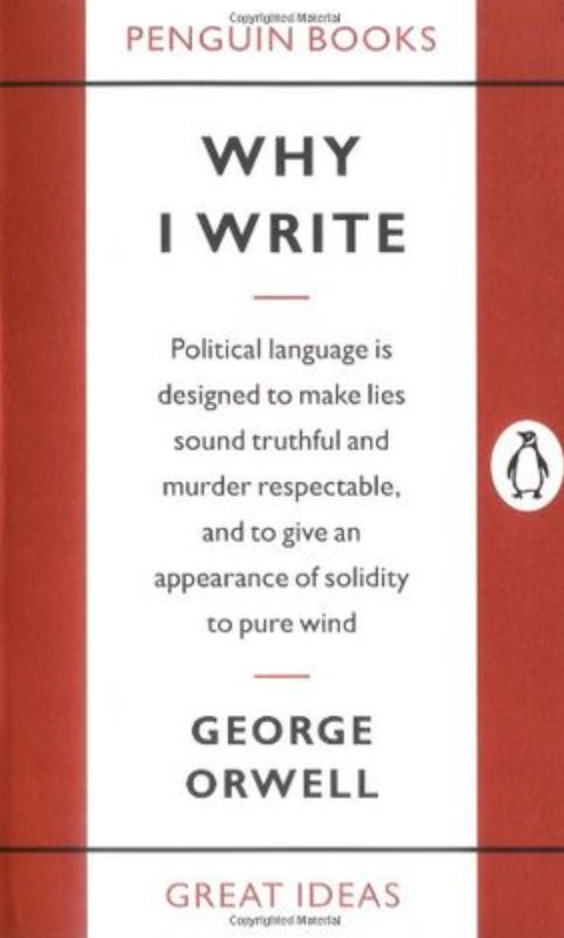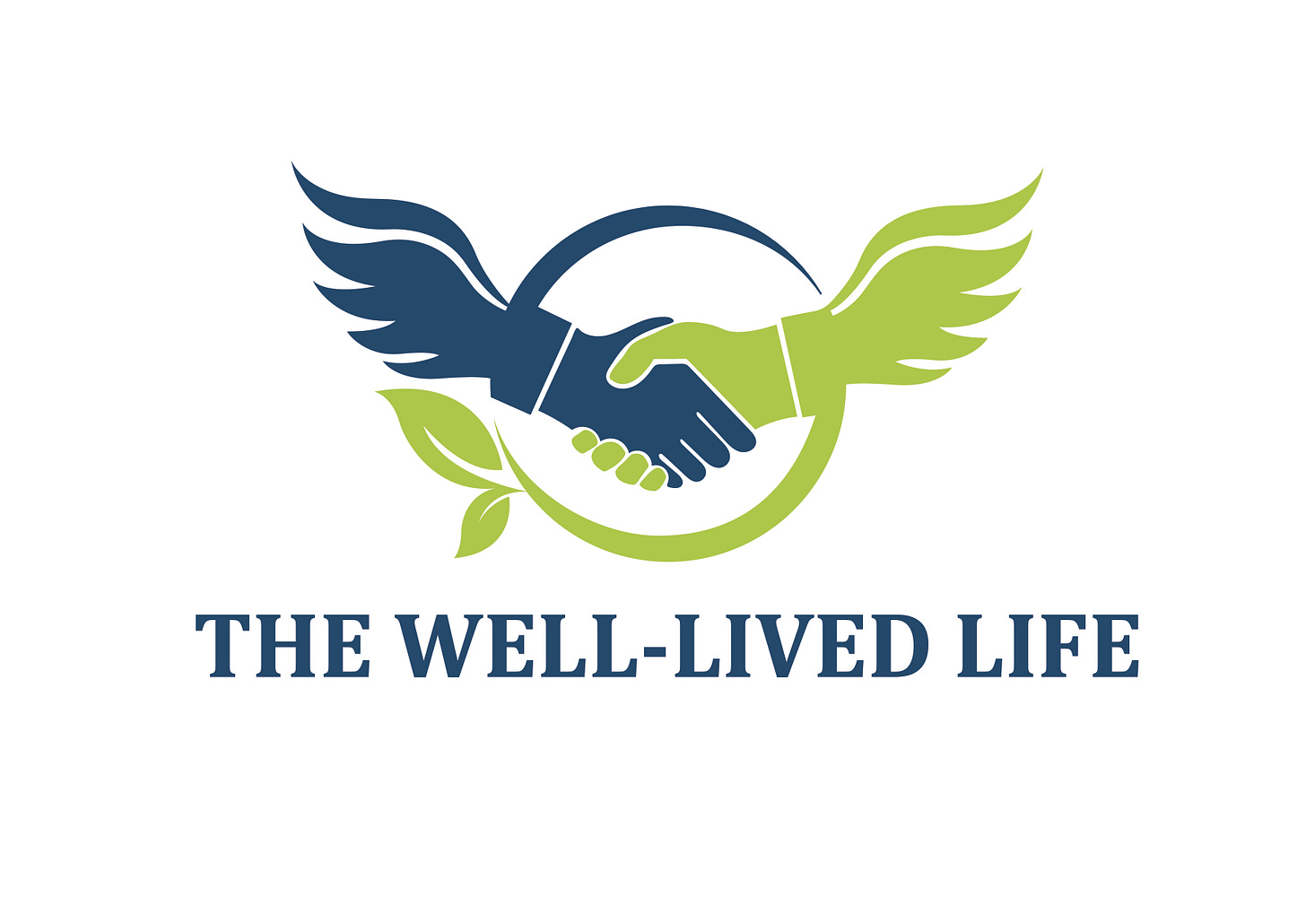Friday Fun Flier XI
A reminder to seek fulfillment, two great books, and my new favorite podcast interview.

Quote of the week:
“To free us from the expectations of others, to give us back to ourselves— there lies the great, the singular power of self-respect. Without it, one eventually discovers the final turn of the screw: one runs away to find oneself, and finds no one at home.”
-Joan Didion
In 2019, halfway through my post-graduation trip in Southeast Asia, my traveling companion’s Dad's then-girlfriend (from more than 13,000 miles away) graciously paid for us and four friends to stay two nights in a 5-star resort.
What a place! We had a six-person villa with California King beds, 24-hour room service, and even a personal Butler! Men wearing ties would bring you towels on the beach if you waved them over. There was a breakfast buffet with foods from all over the world.
Midway through the second day, I started feeling... Useless.
Don't get me wrong, I was having a great time, and I was grateful to the woman who'd paid for the Villa. But I was isolated from the Vietnamese people. There were security guards at the gates. Inside, the resort was a Narnian labyrinth of tropical plants and free smoothies. Outside, just a few blocks away, potholes riddled the streets, and buildings were falling apart.
And there I was; hot, pale meat being spoiled in the Sun.
“The ordinary traveler, who never goes off the beaten route and who on this beaten route is carried by others, without himself doing anything or risking anything, does not need to show much more initiative and intelligence than an express package”
-Theodore Roosevelt.
Earlier in the same trip, I volunteered at a dog rescue in Thailand.
I slept on-site on a rock-hard bed. I washed towels covered in dog crap twice a day, lost sleep when the dogs started barking in the middle of the night, and even had to break up dogfights. At one point, I had to dig a grave for a Yorkie-ish dog that had been poisoned by a local farmer.
If I were asked to choose between the memory of the dog rescue and the memory of the resort, it’s not even a contest. Dog rescue wins. The struggle of the dog rescue was many iterations more fulfilling than the ease of the resort.
When she set out to write Eat, Pray, Love Elizabeth Gilbert was already a successful enough writer that she was given a $200,000 advance by her publisher to pay for her year abroad.
Ever since she published the book, Ubud, Bali has been overrun with spiritual tourists.
I picked up Eat, Pray, Love a few years ago, after being told by many of my travel friends that it was the book for seekers. I got about two-thirds of the way through before discarding it (I can't remember if I missed eating, praying, or loving).
The book made me uneasy. I couldn't shake the feeling that Gilbert was standing on a throne of wealth, in the middle of the developing world, looking out at the people, shouting: “all of you are part of MY journey!”
It was like she was finding herself at the cost of the lost.
As I was writing this week’s newsletter, one of my favorite students walked in during my planning period to borrow my volleyball. I asked her: “what do you think of when you hear the phrase ‘find yourself?’”
She didn't say: “it means running away from everything and meditating on a tropical island” (keep in mind, where I teach has radically less socioeconomic opportunity than where I grew up).
She said: “It means pulling your life together, spending more time doing what you love with the people you love, and not letting people lie to you.”
We adults think we know so much.
I've been lucky enough to spend two years traveling outside the country in 1-3 month spurts. Let me tell you from experience: there's no perfect “self” out there eating raw lentils with their hands in an ashram just waiting for you to find them and inhabit their magic body.
Let's have an honest conversation about the bazillions of “retreats” that have sprung up in the wake of the spiritual tourism movement. Is it good for you/your body to meditate and drink smoothies all day? Undoubtedly. Are you helping anyone other than yourself? No.
Someone has to make the smoothies, out of the best food that could have gone to local people.
Someone has to wipe your yoga sweat off the floors.
Someone profits off of your desire to seek, and it's not often someone local.
In the last year, we've been locked down, unable to go anywhere. It's driving us crazy. We've doubled down on entertainment, terrified that we might be alone with our thoughts for even a second. We itch to move again.
We’ll be able to travel again soon.
When it's safe to travel again, don't book yourself a McAshram’s-middle-aged life-crisis-smoothie-and-yoga-special. Feed your soul by being of service. Go on Workaway, and work with local people on grassroots projects. Volunteer on an organic farm. Help victims of sex trafficking. Hang out with dogs who need help!
When we can travel again, the world is going to need rebuilding. Let’s help rebuild! Resorts have enough money. They don’t need yours. There are many ways to fill your cup, other than with “free” resort smoothies.
Before we get to the books, exciting news! The Well-Lived Life has a swanky new logo:
I couldn’t be more excited. Working with an artist and building a logo was a lot more fun than I thought it would be, and arriving at something that represents what I’m trying to do made it even more rewarding! This was made for me by the talented Reema Kaur, who co-founded Attraente Design. If you need design work, show her some love!
What’s I’m reading this week:
Slouching Towards Bethlehem by Joan Didion

I discovered this book last year, watching the gorgeous Netflix documentary The Center Will Not Hold about Didion's life (and reading The Year of Magical Thinking, crying like a baby elephant).
Slouching Towards Bethlehem is hard to describe. Joan Didion is most often labeled a “culture writer,” but to call Didion a culture writer is like saying that Michael Jordan was “a dunker.” She could do everything.
This book is a collection of her essays from the 60s, covering subjects from the hippie movement/drug culture in San Francisco, to why it's important to keep a personal notebook.
Half of the book is just Didion's thoughts, minuscule details from her personal life, yet she manages to make these essays wildly engaging. Her prose is light as a feather. I couldn't put it down! The things she points out about American culture in the sixties ring true today.
It's one of those books where certain quotes just grab you and you're not entirely sure why, but you're grateful:
“That we have made a hero of Howard Hughes tells us something interesting about ourselves, something only dimly remembered, tells us that the secret point of money and power in America is neither the things that money can buy nor power for power's sake... but absolute personal freedom, mobility, privacy.”

Orwell wrote this in 1940, one year after England entered WWII. It’s a critique of English Capitalism, a rallying cry for the people, and a guide to efficient writing, rolled into 110 pages (I highlighted every single one). I finished it yesterday, and it went straight to the back of my writing desk, where 10 books live that I keep there to remind me of the kind of writer I want to be.
Here are some of my favorite quotes from this tiny box of explosive awesomeness:
“Patriotism and intelligence will have to come together again.”
“Patriotism has nothing to do with conservatism. It is actually the opposite of conservatism, since it is a devotion to something that is always changing and yet is felt to be mystically the same.”
“Political language—and with variations this is true of all political parties, from conservatives to anarchists—is designed to make lies sound truthful and murder respectable, and to give an appearance of solidity to pure wind.”
Orwell talks in the beginning about how the times that his writing felt the most flat were the times in his life that he was writing without a political purpose.
I used to have the harmful idea that I didn’t want to “get political” in my writing. Unfortunately, because the modern world is so divided, telling people to block ads, think about how they consume, form deeper relationships in their communities, and stop searching for happiness is wildly political. I now keep my political purpose in mind as I write, encapsulated in the phrase “We are the answer. Power is the lie.”
One Mind-Dynamitingly fantastic podcast episode:
Sebastian Junger on Joe Rogan:
Now, I’m not a huge fan of Joe Rogan as an interviewer, but this episode was fabulous. It’s one of my favorite interviews ever now (shoutout to my friend Julian Basic for recommending it to me).
This is one of those rare few podcast interviews that I finished, couldn’t believe it was over, and re-started it immediately. I ordered Junger’s book Tribe as soon as I was in wifi range.
For those of you who’ve never heard of him, Sebastian Junger is a former war reporter, writer, and documentary filmmaker. He also has a deep, melodic voice that makes this an absolute pleasure to listen to.
Because of the research he did for Tribe, Junger spends this whole interview explaining why our evolutionary biology is unsuited for the world we live in. He covers everything from why suicide rates go up in the suburbs to why Peace Corps volunteers and combat vets get depressed upon coming home.
Nothing I’ve listened to in the past few months has aligned as well with what I’m trying to get across with The Well-Lived Life.
And finally, the feel-good news story of the week!
It’s the spring of hope, folks! 30% of the US population has had their first COVID dose, cases are down (though we had a small spike in the last few days, the rate is on the decline).
The Navajo Nation announced on Tuesday that they had zero new COVID cases, a 57% first-dose vaccination rate, and zero new COVID deaths.
The full story can be found here.
It won’t be long before more and more communities report the same. We’ll be together again soon :) hope is in the air!
Thank you for your time. As always, you can reply directly to this email to interact with me. If you enjoyed what you read, please hit ‘share’ and tell a few friends!
Thank you for reading,
Aaron.





Love the new logo. Also, George Orwell, Yesss sirrr, I am reading it.
So glad you liked the episode, Aaron! I was eagerly anticipating this newsletter to see if my recommendation made the cut haha. Brilliant work as usual. We oddly seem to be reading a lot of the same books at the same time. Last time it was man's search for meaning, this time I've read three of Orwell's novels in the past week, haha!